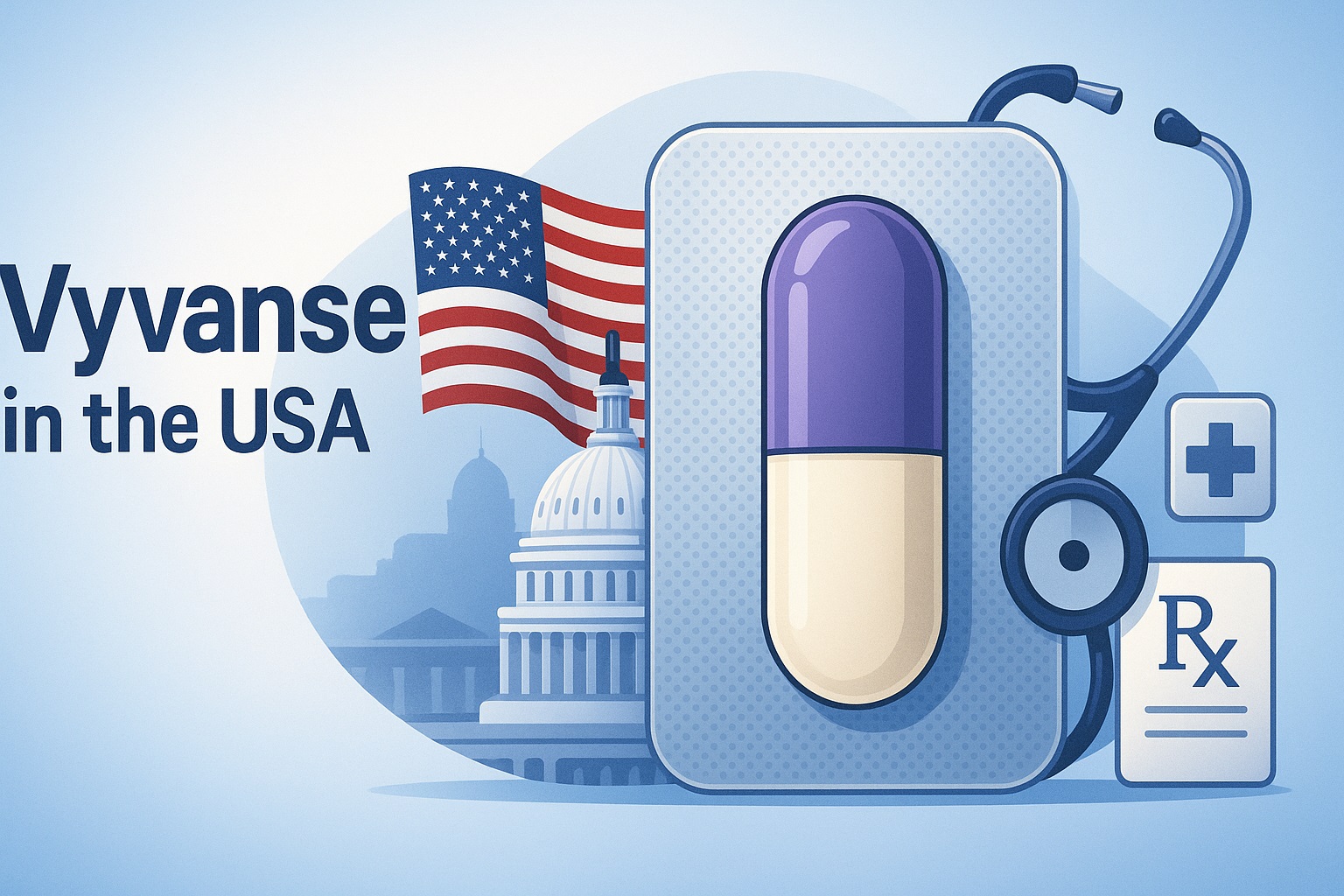Vyvanse, the brand name for lisdexamfetamine dimesylate, is one of the most widely prescribed medications for attention deficit hyperactivity disorder (ADHD) and binge eating disorder in the United States. Since its approval by the Food and Drug Administration (FDA) in 2007, Vyvanse in the USA has become a cornerstone therapy due to its extended-release mechanism, which provides smoother symptom control compared to older stimulant medications. But with its therapeutic benefits comes a strict legal framework that governs how the drug is prescribed, dispensed, and used across the country.
Controlled Substance Classification
In the United States, Vyvanse is classified as a Schedule II controlled substance under the Controlled Substances Act (CSA). This places it in the same category as other stimulant medications such as Adderall and methylphenidate (Ritalin).
The Schedule II designation indicates:
- High potential for abuse and dependence if misused.
- Legitimate medical use, with FDA approval for specific conditions.
- Strict prescription requirements, including no refills; a new prescription must be written for each supply.
Pharmacies are required to maintain detailed records, and prescribers must use DEA registration numbers when issuing Vyvanse prescriptions.
Prescribing and Dispensing Rules
- Refill Restrictions: Federal law prohibits automatic refills of Schedule II drugs. Patients must obtain a new prescription for each month’s supply.
- Electronic Prescribing: While paper prescriptions are still valid, most states now require electronic prescribing of controlled substances (EPCS) to minimize fraud.
- Quantity Limits: Prescriptions are typically limited to a 30-day supply, though some states allow up to 90 days with appropriate documentation.
This rigorous oversight aims to balance patient access with the need to prevent diversion and misuse.
Why Vyvanse Is Closely Monitored
Like other stimulant medications, Vyvanse increases levels of dopamine and norepinephrine in the brain, improving focus and reducing impulsivity in patients with ADHD. However, these same mechanisms make stimulants attractive for non-medical use, particularly among students and professionals seeking enhanced concentration.
Abuse concerns have prompted both the DEA and the FDA to monitor prescribing trends. Although Vyvanse’s formulation (it must be metabolized in the body before becoming active) was designed to reduce the potential for misuse compared to immediate-release amphetamines, cases of abuse and diversion are still reported.
Legal Risks of Possession and Misuse of Vyvanse in the USA
Possessing Vyvanse without a prescription is a federal offense. Penalties may include:
- Fines and criminal charges, even for small amounts.
- Felony-level consequences for distribution or trafficking.
- Academic or workplace sanctions, as many institutions treat unauthorized use as a violation of conduct codes.
Importantly, sharing or selling one’s prescription is also illegal, even if done without profit or with seemingly good intentions.
Comparison With Other Stimulants and Alternatives
Vyvanse shares its legal framework with Adderall, but its extended-release nature and prodrug formulation make it pharmacologically distinct. Patients who cannot tolerate stimulants may sometimes be prescribed non-stimulant medications such as atomoxetine (Strattera). Others explore alternatives like modafinil in the USA a wake-promoting agent used for narcolepsy, which is itself a Schedule IV substance in the U.S., reflecting its lower abuse potential.
Final Word: Legal but Highly Controlled
Vyvanse in the USA remains a legally approved and highly effective treatment for ADHD and binge eating disorder but its Schedule II status means it is among the most tightly regulated prescription drugs. Patients benefit when they:
- Obtain Vyvanse only through licensed healthcare providers.
- Follow their prescriber’s dosing instructions carefully.
- Avoid sharing or misusing the medication under any circumstances.
The U.S. legal framework around Vyvanse underscores a core principle of drug regulation: ensuring patients have access to needed therapies while protecting society from the risks of misuse.
Disclaimer: This article is for informational purposes only and does not constitute legal or medical advice. Patients should consult qualified healthcare professionals and review federal and state regulations for specific guidance.
